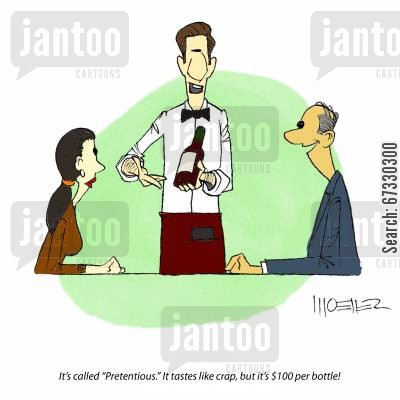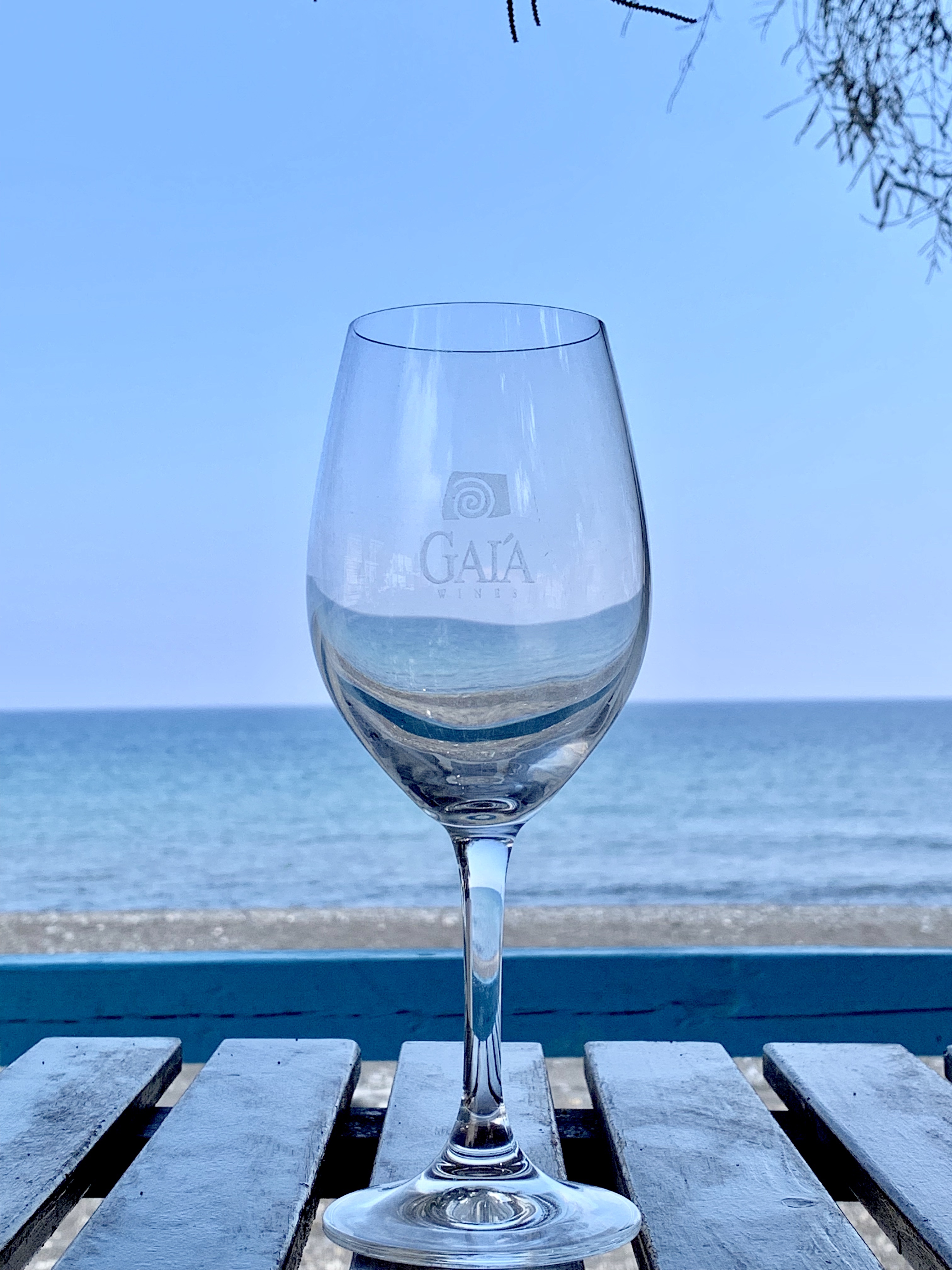First of all, congratulations to Arvid Rosengren, from Sweden, who was recently named World’s Best Sommelier for 2016. He recounts, in an interview with Food & Wine Magazine,[1] the six years of constant study and preparation for the event. Held once every three years by the Association de la Sommellerie, the World’s Best Sommelier competition challenges sommeliers to written and practical exams. It is an intense, grueling event, and in the current culture of celebrity chefs and rock-star somms, winning could really go to one’s head. Yet Rosengren humbly concludes, “You know, whoever’s the best sommelier is really the one who makes his or her guests feel the best.”

Which got me to thinking about sommeliers in general, and I wondered: are sommeliers still relevant and necessary? In today’s social media culture, with Smartphones and apps constantly at our fingertips, do we really need a studied expert to tell us what wine we should drink with our meal? Spoiler alert…I believe we do. But perhaps the deeper question is: what qualifications should exist to be sommelier? I’ve read a number of articles lately arguing one point or another on this question, some of which I discuss in this post.
Living in suburban Northern California, I really don’t have a lot of experience interacting with sommeliers. There’s a fantastic wine bar and bistro down the street, owned and operated by a certified sommelier. I enjoy visiting there and talking wine, when he’s available. More often than not, if suggestions aren’t listed in the menu, it’s his wait staff who make pairing recommendations. Indeed, most of the restaurants in the community, even those with serious wine programs, rely on well-trained servers, rather than sommeliers. This doesn’t seem to be that uncommon here in the Wild Wild West. A San Francisco Chronicle article, from March 2015, asks “Where are all S.F.’s wine pros?” [2]

Let’s lay the groundwork with a definition. What is a sommelier? A sommelier, at the core, is somebody who manages a wine list. Not a very elegant or romantic definition, I know. The practice of certification for sommeliers is a relatively recent development. While wine and wine service has been around for thousands of years, the first Master Sommelier exam was held in 1969, and the Court of Master Sommeliers (CMS) wasn’t established until 1977. Since then, there has been a movement by some people to elevate certified sommeliers to a revered status, and restrict the use of the “S-word” to those who have passed their CMS exams.

I do agree that earning one’s Certified Sommelier pin is an impressive achievement, worthy of respect. However, we should not lose sight of the basic role sommeliers play. Like any other profession, there are book-smarts, and then there are street-smarts. Earning certification does not necessarily equate to the ability to be a successful sommelier in a day-to-day, customer service operation. Many highly qualified people have worked their way up, learning hands-on, on the job, but have not invested the time and considerable cash in obtaining certification. Arguably, these experts are no less sommeliers than those who have studied for, and passed their exams. Indeed, in an article published in Punch, Dustin Wilson, Master Sommelier and Wine Director at New York’s Eleven Madison Park, asserts that “in order to have a mature profession you need both the structure and standards that certification offers and the sort of openness that allows people to choose a different path.”[3] And in another Punch article, Carson Demmond goes so far as to say that “sommelier” is simply a job title. She says, “Sommelier” isn’t an abstract title or a generic, yet high-brow name for “wine expert”—it’s a job. A restaurant job. And certification is by no means prerequisite to being a good one.”[4]
Still, I do think that sommeliers, whether certified or not, are a valuable asset for the hungry masses. At least for some. Early in my wine journey, I was much too intimidated to ask questions of the few sommeliers I encountered. That’s a negative consequence of the mystique that the profession has created for itself. However, as wine culture expands and becomes less pretentious, more people are interested in learning. This is especially true for the younger generation, which tends to demystify much in life, breaking through boundaries, and bringing lofty things down to earth. In fact, in yet another Punch article, author Francis Percival describes the shift from stuffy, suit and tie “sommelier,” to the more casual, hipster, tattooed and jeans-wearing “somm.”[5] This eagerness to explore is not limited to millennials. As I’ve expanded my wine knowledge, I now know enough to be curious, and appreciate the opportunity to talk wine with an expert.
Finally, along with their knowledge and expertise about wine, and the foods with which to pair them, sommeliers bring with them the human element, so often lacking in our modern, connected, face-in-a-phone society. Smartphone apps only go so far, and like social media in general, remove actual, human interaction from our existence. Besides, they haven’t yet invented an app that can pull the cork and decant that pricey bottle of Burgundy for you.
So, yes, I do believe the sommelier is not only relevant, but necessary. Whether certified or not, it is about providing a service and enhancing a guest’s experience. For this reason, I value and respect sommeliers everywhere.
What do you think?
_________________________________________________________
[1] http://www.foodandwine.com/blogs/what-it-takes-become-best-sommelier-world
[2] http://www.sfchronicle.com/wine/article/The-last-sommelier-standing-where-are-all-6119178.php
[3] http://punchdrink.com/articles/op-ed-in-defense-of-sommelier-certification/
[4] http://punchdrink.com/articles/the-myth-of-sommelier-certification-debunked/
[5] http://punchdrink.com/articles/the-rise-of-the-american-somm/



The best Sommelier knows the wine in his inventory, the food the chef has prepared for the evening and makes you feel at ease asking questions. Certification is meaningless with out these prerequisites. Good post and I agree while a Sommelier is not necessary for an enjoyable evening, they do add value to the dining experience.
LikeLiked by 3 people
Thanks Robert. I always appreciate your input!
LikeLike
Part of the sommelier’s job is to educate and train the wait staff so even though he/she might not be present on the floor, their influence is (or at least should be) felt. Having said all of that, I think the need for quality somms will continue to diminish as technology continues.
LikeLiked by 1 person
Interesting observations. I wonder if we will get to a point where there are independent, “consulting” somms, who would offer services to several locations in a region. Maybe these already exist?
LikeLiked by 1 person
If they don’t, they probably should/will. Almost everything can be done remotely these days, why not wine list management?
LikeLiked by 1 person
If I were a lot younger and an enterprising Somm, I’d develop and app that I would offer to restaurants that I’d customize weekly for their inventory and menu so that they could had a tablet to customers and staff that paired each wine with the menu by price category and reviewed each wine. That way I could be the Somm for a couple of dozen Restaurants at the same time. I could also franchise the app and program to other aspiring Somms to use. We would all share the reviews and pairing so that it would be quite simple. I know there are pairing apps for phones that do pretty much the same thing for free. But think of the class of handing a guest a table and saying ” Our Sommelier has prepared this wine list to pair with tonight’s menu. If you would like to look it over, I’ll be back in a few minutes with your cocktails to answer any questions you may have about the menu and our wines It will happen if it hasn’t already
LikeLiked by 1 person
I could definitely see that app working, and being very popular. You heard it here first, folks!
LikeLike
I agree with you how somms and wine pros in general can add to an experience. In addition to enjoying conversations with somms, I enjoy chatting with knowledgable wine staff in a retail or bar environment. Definitely makes experience less transactional and with the potential for transformation. For me the human face time trumps the app experience – rarely can an app provide a transformative wine experience in wine and this comes from someone who loves technology as well as wine. For me, it’s all about relationships.
LikeLiked by 1 person
I absolutely agree! Wine is meant to be enjoyed with people. There are times when one may want a quiet glass alone while surfing Pinterest or other social media, but hopefully one does that at home!
Thanks for the comment!
LikeLike
I agree with you how somms and wine pros in general can add to an experience. In addition to enjoying conversations with somms, I enjoy chatting with knowledgable wine staff in a retail or bar environment. Definitely makes experience less transactional and with the potential for transformation. For me the human face time trumps the app experience – rarely can an app provide a transformative wine experience in wine and this comes from someone who loves technology as well as wine. For me, it’s all about relationships.
LikeLiked by 1 person